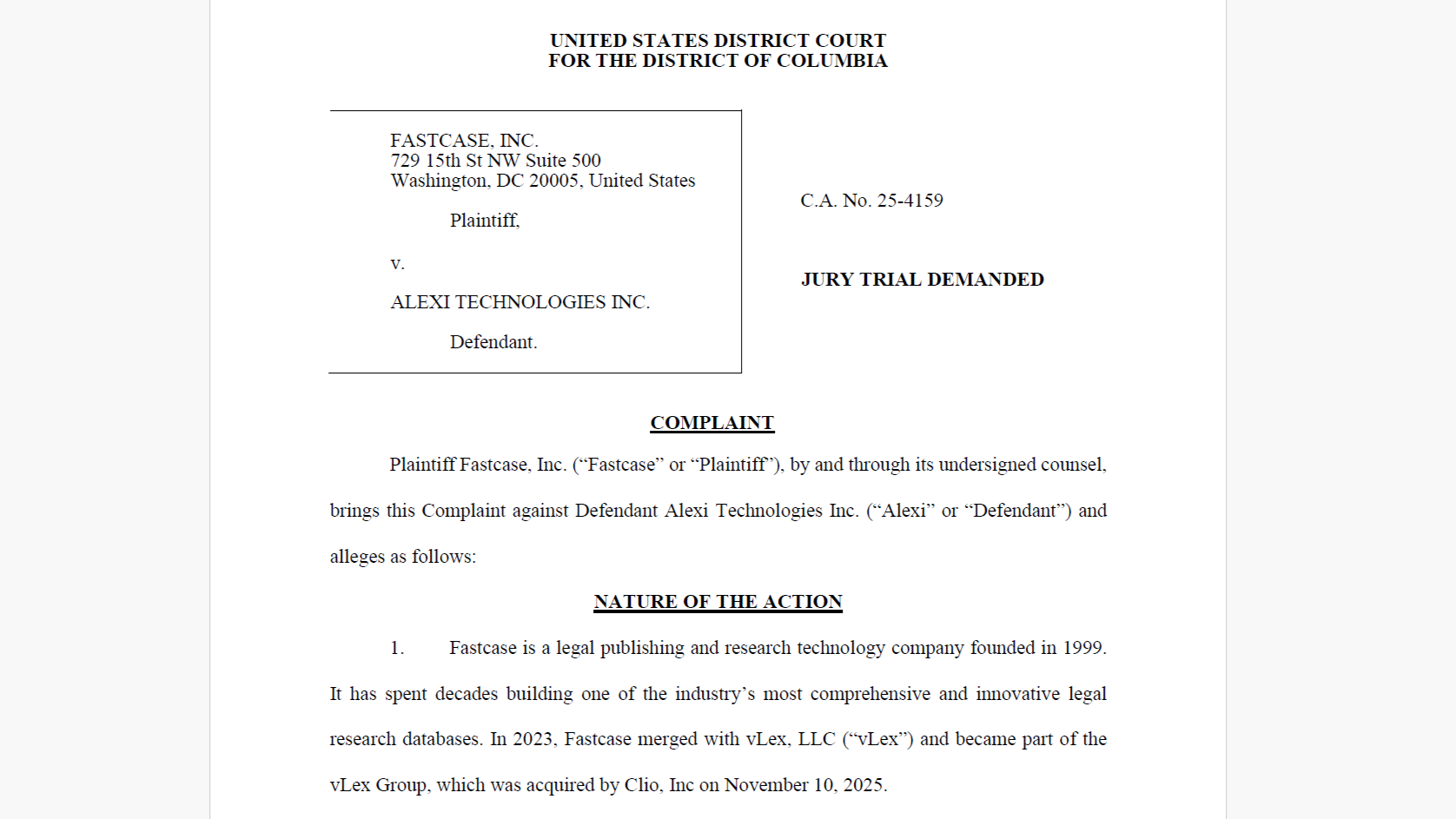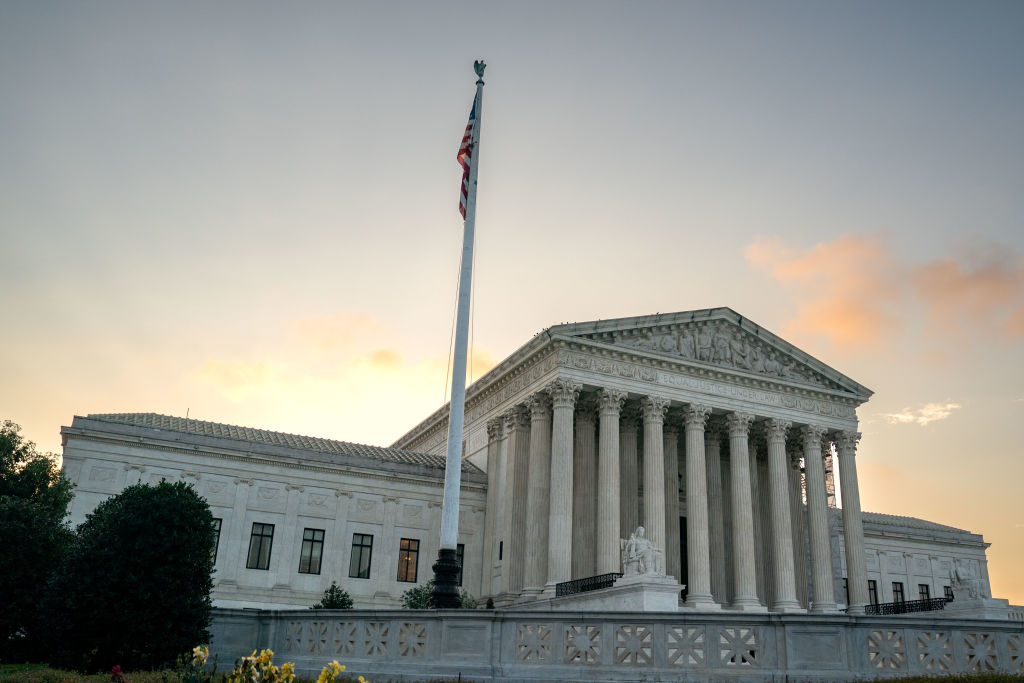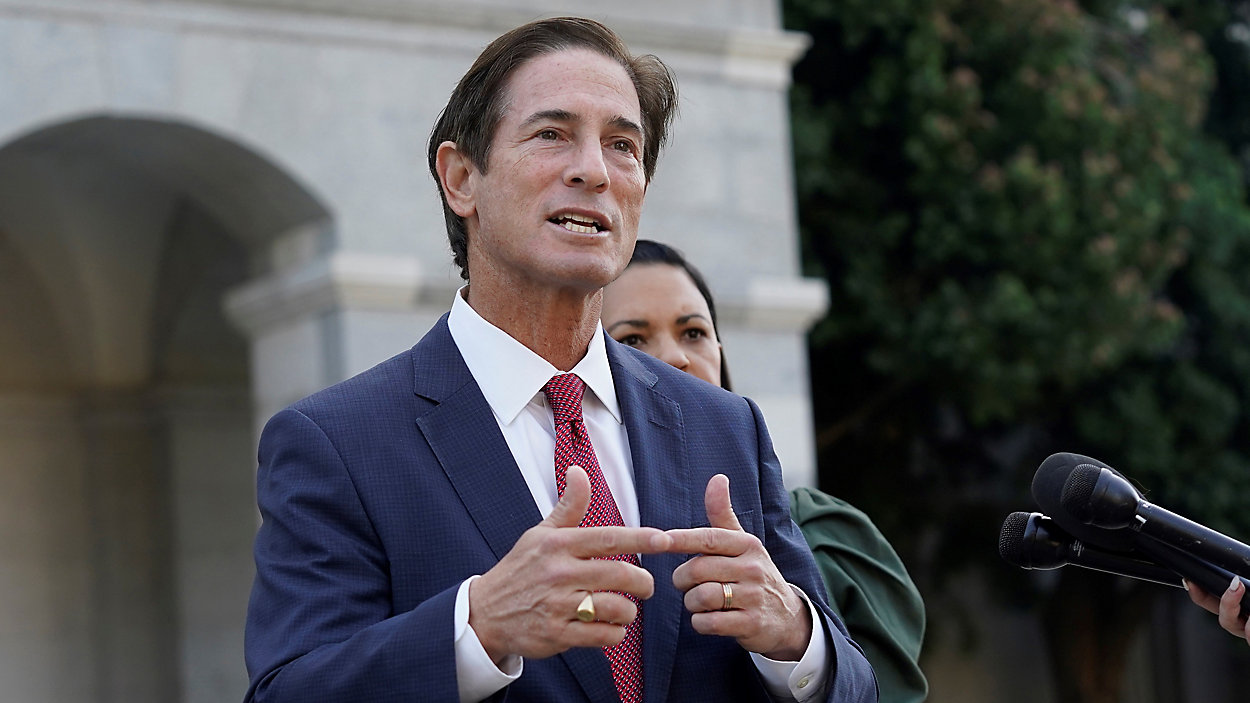Over the course of two and a half hours of oral argument yesterday, the Supreme Court considered whether to grant the Trump administration’s request to cut back on three federal district court rulings invalidating the President’s executive order denying United States citizenship to children born in the U.S. to parents who are either undocumented or legally in this country temporarily. As a formal matter, the Court was considering only the scope of permissible relief rather than the underlying merits of the constitutional challenge to the policy. Each of the preliminary injunctions forbids the administration from implementing its restrictive citizenship policy with respect to anyone born in the United States. The Trump administration did not ask the Court to reverse the substantive invalidation of its policy. Rather, at this point in the litigation, it is asking that the injunctions be narrowed to provide relief only for the parties themselves.
The case thus tees up the following question: under what circumstances, if any, does a single federal district judge in a case that has not been certified as a class action have the authority to issue a “universal” or “nationwide” injunction?
That is an important question that has been a concern for Republican and Democratic administrations alike. As I explain below, it is not entirely clear how the Court should or will answer it. However, if the Justices answer the somewhat technical legal question about the availability of universal injunctions without also saying something about the Trump administration’s underlying assault on birthright citizenship, it will do the nation a grave disservice. By docketing a high-profile oral argument on the case after the end of its regular schedule, the Court—no doubt unwittingly—invited the media and the public to believe that the status of birthright citizenship is the subject of a genuine debate.
For example, a recent New York Times article on the case ran under the headline, “At Supreme Court, a Once-Fringe Birthright Citizenship Theory Takes the Spotlight,” thereby falsely implying that Trump’s view of the Fourteenth Amendment is no longer a fringe theory and that the Supreme Court case spotlights that theory rather than the technical legal question of the permissible scope of district court injunctions.
To be sure, a handful of high-profile scholars have recently been able to secure placements for op-eds that cherry-pick Reconstruction-era quotations to support a contrarian reading of the Fourteenth Amendment’s historically narrow exception for persons who are not “subject to the jurisdiction” of the United States. These scholars likewise ignore the rationale of the landmark 1898 ruling in United States v. Wong Kim Ark, which affirmed that that exception referred to children born to foreign diplomats or invading armies. The overwhelming weight of scholarly opinion supports the view that has been endorsed by all three branches of government for as long as anyone can remember.
Accordingly, and as Justice Sonia Sotomayor suggested during yesterday’s oral argument, the Court could deny the government’s application to narrow the district court injunctions on the ground that the government’s merits case is weak. Both the “likelihood of success on the merits” and the “balance of equities” are supposed to figure into the calculus of whether a court should grant a request for injunctive relief—and that includes a request that the Supreme Court modify the injunctive relief granted by a lower court. Ideally, the Supreme Court would write a forceful opinion explaining that, whatever difficulties are raised by universal injunctions in close cases, this case is easy; because the Trump administration’s policy on birthright citizenship is blatantly unconstitutional, there is no harm in allowing the universal injunctions to stand.
Failing that, should the Court resolve the universal injunction issue but not reach the merits, it should, at a minimum, make crystal clear that it is not endorsing the Trump administration’s merits position. I would hope that it would go further. As Yale Law Professor (and occasional Verdict contributor) Akhil Amar said to me and a few other constitutional law scholars earlier this week, having created the false impression that there is a genuine controversy about whether the Fourteenth Amendment means what it says, the Court has an obligation to issue some forceful dicta casting grave doubt on the administration’s merits position.
Are Class Actions a Substitute for Universal Injunctions?
During yesterday’s oral argument, the conservative Justices appeared much less interested in talking about the merits than the liberal ones did. For some, especially Justice Clarence Thomas and to a lesser extent Justice Amy Coney Barrett, the crucial question appeared to be whether courts at the time of the Constitution’s adoption had the power to grant universal injunctions or their equivalent. They were interested in that question because, for them, it bears on whether universal injunctions are unconstitutional. Federal courts exercise “the judicial power,” which, self-styled originalists contend, encompasses only those powers that courts exercised at the Founding.
Other Justices were wary of deciding the case on constitutional grounds. Justice Neil Gorsuch suggested that the Court should leave that question for another day. Meanwhile, Justice Brett Kavanaugh, picking up on a suggestion of Solicitor General John Sauer, indicated that universal injunctions could be rejected on one particular sub-constitutional ground: that they secure to plaintiffs the benefits of a class action without the costs. Under the terms of Federal Rule of Civil Procedure (FRCP) 23, a court can grant an injunction for a nationwide class but only if the class is certified as such in accordance with the rule’s criteria.
Moreover, if a case is certified as a class action and the plaintiffs lose, all class members—including those who are not named parties—are bound by that ruling. By contrast, if someone is not a party to a case seeking a universal injunction, they are not bound by a ruling rejecting the claim but they can benefit from a victorious case. That places the federal government at a serious and arguably unfair disadvantage: it must win every case brought against it to avoid a universal injunction, whereas a series of different plaintiffs suing in different courts can lose repeatedly until they win once.
The lawyers who argued against the Trump administration—New Jersey Solicitor General Jeremy Feigenbaum (on behalf of his state and many others) and Kelsi Corkran (on behalf of immigrant rights groups and their members)—pushed back on multiple grounds. For one thing, it is not clear that the modern class action mechanism has the kind of pedigree that would satisfy originalists, so relying on it as an alternative to a universal injunction would not avoid the constitutional question. Further, class relief is available to individuals but not to states or organizations, so it would be at best a partial substitute. Nor, according to Ms. Corkran, do the text or history of FRCP 23 indicate that it was meant to narrow the scope of equitable powers courts enjoy in non-class cases. In addition, FRCP 23 authorizes “final injunctive relief” but is silent about preliminary injunctions. And last, even if a district court can grant preliminary injunctions under FRCP 23, a decision to deny such relief would not be binding on the class members, because only a final judgment has that effect. Thus, resort to FRCP 23 does not mitigate the ostensible asymmetrical unfairness to the government.
Despite these legitimate objections, I suspect that one or more Justices—and perhaps even a majority of the Court—will look to FRCP 23 as a preferred alternative to universal injunctions in non-class cases. Although that is not their preferred outcome, lawyers challenging the Trump administration policy would not be seriously hampered by such a result. Notwithstanding the limitations discussed above, the lower federal courts generally allow the granting of preliminary injunctive relief on behalf of a putative class—that is, a proposed class, even before the court certifies it under the criteria set out in FRCP 23. And while the Supreme Court has not given plenary consideration to the permissibility of this procedure, it tacitly blessed the approach just last month when, by a 7-2 vote, it ordered the Trump administration “not to remove any member of [a] putative class of detainees” whom the government was preparing to send to an El Salvadoran prison.
Accordingly, if the Court rules that universal injunctions in non-class cases are legally impermissible, lawyers should be prepared to go back to the district courts, seek certification for a nationwide class action, and then ask for preliminary injunctive relief for the putative class.
Will that work? There are two potential obstacles, but neither is insuperable.
First, Solicitor General Sauer suggested that the Justice Department might oppose class certification on the ground that the plaintiff class members are not all sufficiently similar—thus failing the commonality requirement of FRCP 23(a)(2). However, this objection can be easily overcome by certifying sub-classes: one for children born to undocumented immigrants and another for children born to people who are lawfully but only temporarily present in the United States.
Second, there is a danger that anyone who would serve as a named class member would be subject to retaliation, including the risk of deportation. But that risk can be mitigated by suing pseudonymously. Courts balance the need for anonymity versus prejudice to the defendant and the interest in open court proceedings in deciding whether to allow a party to sue as John Doe or Jane Roe. Given that challenges to the Trump birthright citizenship policy and most of its other legally dubious polices present pure questions of law, there is no prejudice to the government in allowing a named plaintiff to proceed pseudonymously. Meanwhile, any plaintiff should have an easy time demonstrating the need for such protection, given the Trump administration’s demonstrated aggressiveness and vindictiveness towards immigrants and others.
What’s the Point?
Is there any good reason to require plaintiffs to proceed via a putative class action rather than seeking universal injunctions in non-class cases when, as Ms. Corkran noted during the oral argument, using the class action mechanism does not address the ostensible reasons for being concerned about universal injunctions? Justice Kavanaugh answered that rhetorical question by asserting that the law “care[s] about technicalities.” And to his credit, he did not mean that plaintiffs should lose on a technicality. He apparently meant that it is important to ensure that plaintiffs have a fully lawful means of expeditiously challenging and securing relief from unlawful government conduct.
As for the concern raised by the fact that presidents of either party have, in recent years, found their policy aims frustrated by district judges enjoining them, an exchange between Justice Kavanaugh and Ms. Corkran late in the argument was telling. They agreed that the root cause of the proliferation of universal injunctions is aggressive action by presidents. Justice Kavanaugh characterized the phenomenon as “bipartisan,” which is true up to a point.
But only up to a point. The White House is currently occupied by a would-be king who likes to rule by decree. Many of those decrees are not only aggressive but, as in the case argued yesterday, blatantly unconstitutional, indeed anti-constitutional. If the Court lacks the courage or inclination to comment in this case on the terrible substance of the birthright citizenship executive order, it should at least leave open effective means by which the courts can block it.




























